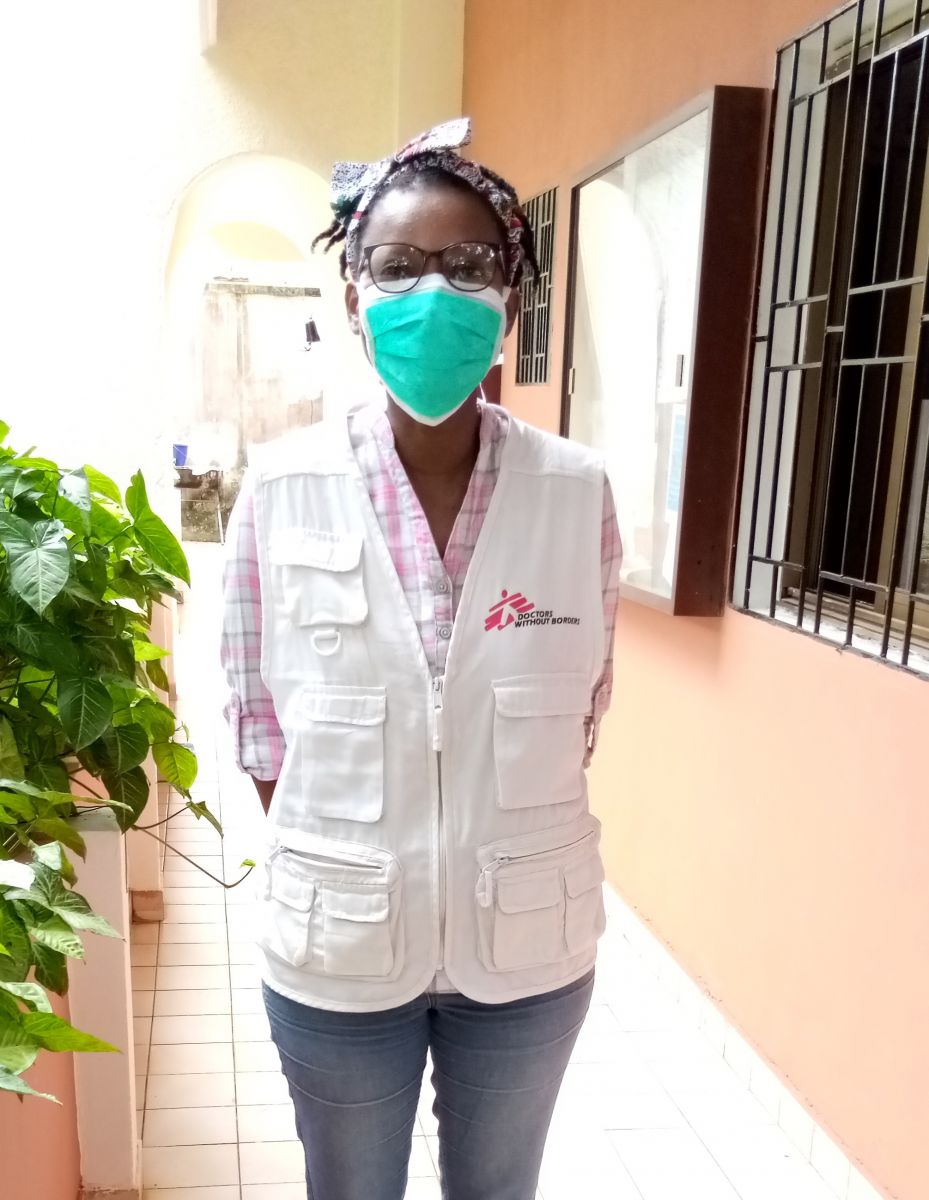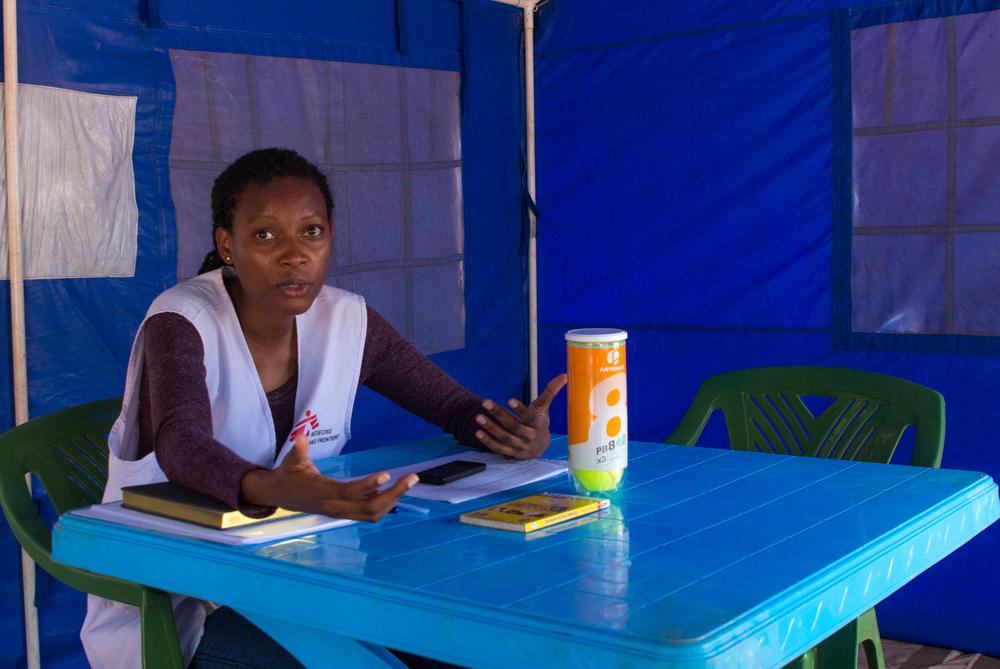
In the mental health component of the Kumba project, we reach our patients by training community health workers who come from areas which have internally displaced people, and they provide screening, referral for severe cases and basic treatments for malaria, malnutrition, danger signs in pregnancy, acute watery diarrhea (AWD), Psychological First Aid (PFA) for internally displaced people in every fresh wave of violence by armed groups in the bush and disease surveillance for epidemics – cholera, COVID-19 and measles.
I was responsible for management of severe cases while also overseeing MSF’s mental health staff through daily clinical supervision. I also provided clinical supervision for the mental health staff in the collaborating health facilities in the region where we work. I worked closely with other organisations to aid vulnerable persons, such as unaccompanied and separated children and survivors of sexual violence by linking them to Child Protection and Social Services after medical care and mental health support is given to them.
Overall, MSF is trying to give our patients hope, restore their dignity and help them to cope with their harsh reality of living in a violent context that is now accompanied by COVID-19 pandemic. This adds an extra layer of complexity, but as an organisation that is skilled in working during outbreaks and epidemics, and because we know how much our patients depend on our work, we have to keep on providing these services whilst keeping our staff and patients safe.
